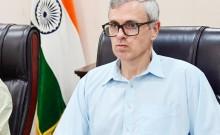The last British resident to be held at the US prison camp in Guantanamo Bay described some of the interrogation techniques he was subjected to at the Bagram air base in Afghanistan.
Shaker Aamer, a Saudi national married to a Briton, was suspected by US authorities of being an Islamist militant associated with al-Qaeda but was never charged with any crime. He was released in October after 13 years detention at Guantanamo and has since returned to Britain.
In an interview with ITV News on 13 December he described in detail his experience. With every sense of the meaning: torture. Its a pure torture. Ive been kept for nine days awake. I was standing 18 hours a day. There was all kind of things, from freezing you, throwing freezing water on your head while you are standing on concrete, freezing cold, 20 below zero with the hedgehog ties, which is they tie your hands and your legs together and you cannot relax because your hands [are] behind your back.
With all the beating which happened, hitting my head against the wall which happened once, no, more than once, because it was the real interrogation time when they were trying to break me down and they did that.
Aamer said it was difficult to adjust to normal life. Im here. Its not easy to be here. Even though you all think I am a very strong person and I try so hard to act to be normal, but it is hard. But I say Alhamdulliah (thank God) I thank my Lord that I am back with my wife and kids and I am just trying to get back to my life, he said.
He alleged the British government knew he was being tortured. Rights group Reprieve said Aamer moved to Britain in 1996 and was in Afghanistan in 2001 doing voluntary work for an Islamic charity when he was captured by Afghan Northern Alliance forces and handed to the US military. He was then transferred to Guantanamo when the prison camp was opened in 2002.
Aamer said he believed that Britain was not entirely to blame for what happened to him, and accused America of driving the events. He said he had no plans to take legal action against the British government. A public enquiry would be more useful, he said.

















